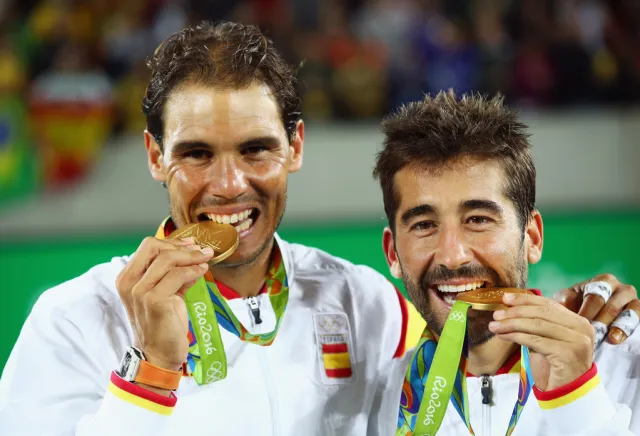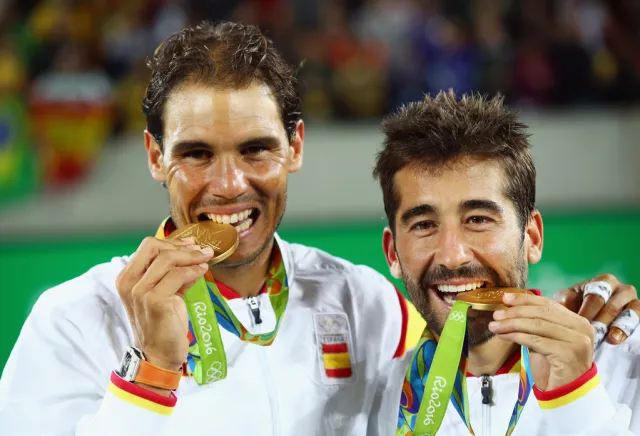
Why Do Athletes Bite Their Gold Medals? Is There a Deeper Meaning or Is It Just a Strange Tradition?

When you think of the Olympic Games, certain iconic images come to mind: the lighting of the Olympic flame, the parade of nations, and, of course, triumphant athletes biting down on their gold medals. It’s a peculiar gesture that has become synonymous with victory, but why do athletes do it? Is there a hidden significance behind this quirky act, or is it just another odd tradition? Let’s dive into the origins and meaning behind this curious ritual.
A Nod to the Past: The Origins of the Tradition
The practice of biting into precious metals dates back centuries, long before the advent of modern sports. In earlier times, people would bite into coins or other metals to test their authenticity. Gold is a soft metal, and a genuine piece would show slight bite marks, while harder metals would not. This technique was especially useful in times when counterfeit coins were more common.
While today’s athletes aren’t actually testing their medals for authenticity—Olympic gold medals are predominantly made of silver and coated with a thin layer of gold—the gesture has been carried over as a symbolic act, connecting modern champions with a tradition that spans centuries.
The Role of Photography: A Picture-Perfect Moment
The widespread popularity of the medal-biting pose can also be attributed to the demands of the media. Photographers are always on the lookout for unique and memorable shots that capture the essence of victory. Over time, the image of an athlete biting their gold medal has become a quintessential snapshot, embodying both the thrill of victory and a playful nod to history.
Athletes, aware of the media’s expectations, often indulge in this ritual to please the cameras and secure a place in the visual history of the Games. It’s a moment that says, “I’ve won,” with a dash of flair and personality.
A Deeper Psychological Connection
Beyond tradition and photography, there’s also a psychological element at play. Winning an Olympic medal is the culmination of years of hard work, dedication, and sacrifice. Biting the medal can be seen as a way for athletes to physically connect with their achievement, grounding themselves in the reality of their success.
The act may also serve as a release of pent-up emotions. After the intense pressure of competition, the simple, tactile act of biting the medal can be a way for athletes to express their relief, joy, and pride in a single gesture.
The Evolution of a Tradition
Interestingly, not all athletes embrace this tradition, and some have even poked fun at it. For example, German luge athlete David Möller humorously bit into a silver medal-shaped cookie instead of his actual medal at the 2010 Vancouver Winter Olympics. This playful twist on the tradition shows that while the ritual is widespread, it’s not without its critics—or its comedians.
Moreover, as the tradition has grown, some athletes have started using the pose to make statements or add personal flair, turning the medal-bite into a canvas for self-expression.
Conclusion: More Than Just a Quirk
While biting a gold medal might seem like an odd or whimsical tradition, it carries with it layers of historical significance, media influence, and psychological meaning. It’s a gesture that links today’s athletes with a time-honored method of verifying gold, while also providing a perfect, camera-ready symbol of triumph.
So the next time you see an athlete sink their teeth into a gold medal, remember: it’s more than just a photo op—it’s a moment steeped in tradition, history, and personal victory.
Leave a Reply